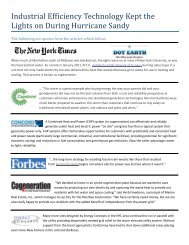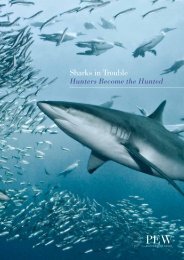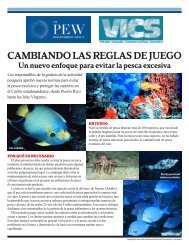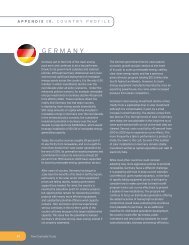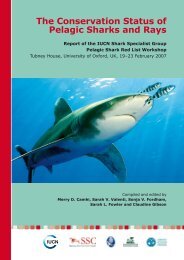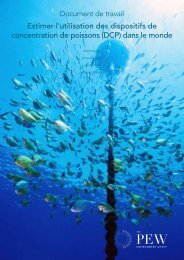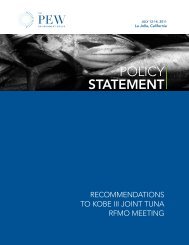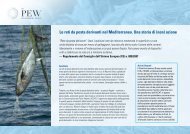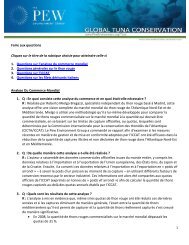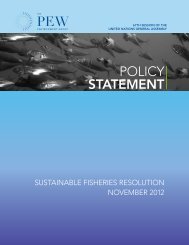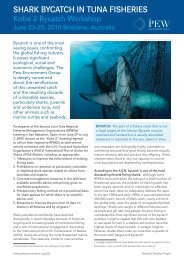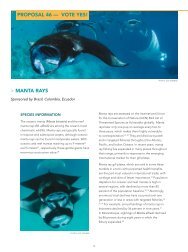The Law That's Saving American Fisheries - Ocean Conservancy
The Law That's Saving American Fisheries - Ocean Conservancy
The Law That's Saving American Fisheries - Ocean Conservancy
You also want an ePaper? Increase the reach of your titles
YUMPU automatically turns print PDFs into web optimized ePapers that Google loves.
“Draggers have a bad reputation for over-harvesting and<br />
grabbing everything that’s down there,” he says. “With<br />
an observer onboard, I can prove that’s not the case.”<br />
Seitz is part of a West Coast drag fleet that uses “risk pools,”<br />
which help the fishermen cope with accidental overages.<br />
Not unlike the concept of a sick-leave bank, each fisherman<br />
donates some of his quota to the marketing association’s<br />
pool. If a fisherman accidentally exceeds his quota and is shut<br />
down, he can then ask to use or buy the quota he needs from<br />
the risk pool so he can keep fishing. Risk pools also advise<br />
members where to fish, helping the fleet avoid areas where<br />
overfished species are present.<br />
Selling locally to niche markets is another strategy Seitz<br />
employs to establish more solid financial footing. He markets<br />
directly to restaurants and is exploring relationships with area<br />
universities to create a program of community-supported<br />
fishing. Modeled after local agriculture cooperatives, which<br />
arrange for the delivery of seasonal fruits and vegetables to<br />
subscribers, community-supported fishing contributes fresh<br />
seafood to area markets while providing a better price for the<br />
fishermen. In addition to helping the fishermen financially,<br />
the program connects local communities to the fisheries and<br />
fishermen who feed them.<br />
“Draggers have a bad reputation for overharvesting<br />
and grabbing everything that’s<br />
down there. With an observer onboard, I can<br />
prove that’s not the case.”<br />
— Rob Seitz<br />
Seitz is just one of many fishermen using innovative methods<br />
to adapt to policies designed to sustain U.S. fisheries. His<br />
ability to prosper within the constraints of the Magnuson-<br />
Stevens Act shows how individuals can work within the<br />
regulations to allow resources to be managed effectively and<br />
responsibly. As he says, “It’s better to live in the solution than<br />
to be a part of the problem.”<br />
Use of selective fishing methods can help protect cowcod, which are overfished.<br />
NOAA<br />
24 It’s a Keeper



